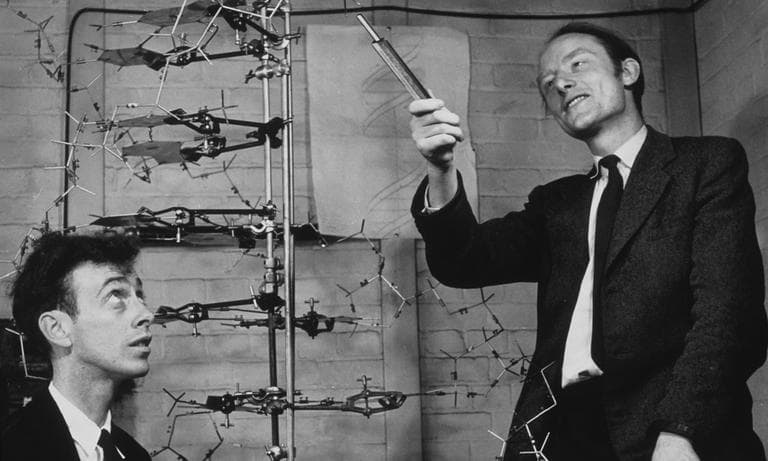Advertisement
Should You Have Your DNA Sequenced?
Resume
What if you knew the content of your genome? What diseases you might be predisposed to, what mutations you might silently carry.
With the cost of genetic sequencing falling thanks to new techniques, it's possible to find that out for much less than it used to.
But would you want to know?
Journalist Eliza Strickland did find out for recent piece she wrote, as associate editor of IEEE Spectrum, the magazine of the Institute of Electrical and Electronics Engineers.
Strickland had her exome sequenced. The exome is the part of the genome that actually contains a person's genetic data.

A handful of companies are trying to create technology that would be able to sequence a genome for around a thousand dollars. While they're getting close, there's still a lot of expense in reading that data and correctly interpreting it.
Strickland told Here & Now that those costs might come down soon.
"There are a lot of smart software guys trying to automate the doctors' work, automate the analysis," she said.
The cost of interpreting the data isn't the only factor keeping people from getting sequenced: the information you get might not be that useful. For example, you could learn what your diagnosis is, but doctors might not have the ability to treat or cure it.
Strickland interviewed Dr. James Watson, half of the team that discovered the shape of DNA in the early 1950s.
He had his genome sequenced by one of the companies that is working on new speedier sequencing technology. But he had one request in doing so: he didn't want to know about the likelihood of his having Alzheimer's disease, saying he would waste too much time worrying about it.
Strickland says most of the experts she spoke to did not think that healthy people should have their genomes sequenced.
"This kind of medical genomics, where you're looking into your medical future, isn't really ready for the doctor's office," Strickland said. "I think it's useful for people who are on these diagnostic odysseys."
Would you get your genome sequenced? Tell us on our Facebook page.
Guest:
- Eliza Strickland, associate editor for IEEE Spectrum, the magazine of the Institute of Electrical and Electronics Engineers. She tweets @newsbeagle.
This segment aired on March 6, 2013.